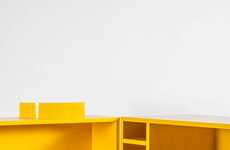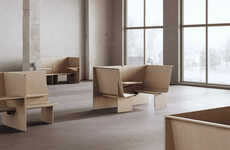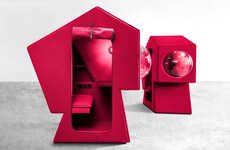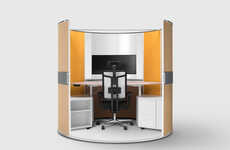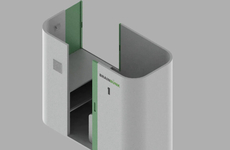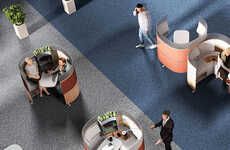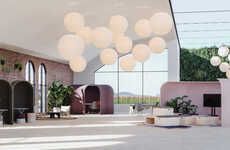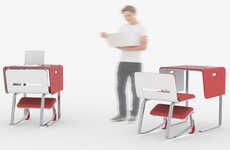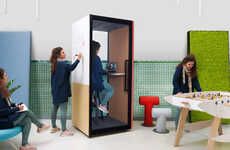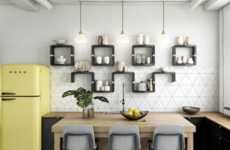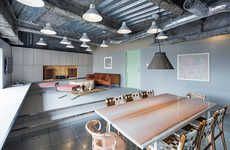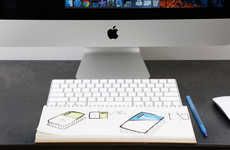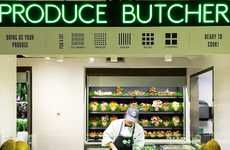
Students at ECAL Have Redesigned Office Cubicles for Alternative Functions
Mary Van Puymbroeck — July 11, 2017 — Art & Design
Students from ECAL University have created a series of redesigned office cubicles for alternative functions.
The cubicle system the students chose to use was the 'Workbay Office System' created by French designer, Eric Bouroullec. The students aimed to change the function of each cubicle and they were able to design a bar, a farming space, napping areas and standing work desks. Bouroullec's Workbay system was initially designed to combat the rigid cubicles that characterized the 60s.
These redesigned office cubicles offer opportunities for office workers to step away from their work and enjoy some down time. According to the workshop's leader, Camille Blin, "just by adding really simple structures to an existing Workbay, it becomes a space for employees to step away from work and exchange in a more casual way."
The cubicle system the students chose to use was the 'Workbay Office System' created by French designer, Eric Bouroullec. The students aimed to change the function of each cubicle and they were able to design a bar, a farming space, napping areas and standing work desks. Bouroullec's Workbay system was initially designed to combat the rigid cubicles that characterized the 60s.
These redesigned office cubicles offer opportunities for office workers to step away from their work and enjoy some down time. According to the workshop's leader, Camille Blin, "just by adding really simple structures to an existing Workbay, it becomes a space for employees to step away from work and exchange in a more casual way."
Trend Themes
1. Flexible Office Furniture - Redesigned cubicles that cater to alternative functions present opportunities for the production and marketing of customizable office furniture.
2. Workplace Wellbeing - The use of cubicles for napping and relaxation highlights a trend in workplace design towards emphasizing employee wellness as part of productivity and retention strategies.
3. Modular Office Spaces - The use of modular cubicles for flexible and multi-functional use is indicative of a trend towards the creation of versatile and modular office spaces that can be easily reconfigured to suit changing needs and needs of different teams.
Industry Implications
1. Office Furniture - The redesign and repurposing of cubicles present new opportunities for companies that produce office furniture, and who could benefit from looking into new use cases for existing or new products.
2. Corporate Real Estate - The trend towards the creation of modular and flexible office spaces, including cubicles that cater to alternative functions, is indicative of a shift in mindset in corporate real estate towards more adaptable and versatile workplaces.
3. Design & Architecture - The trend towards creating more flexible and adaptable office spaces, including cubicles that cater to alternative functions, will require new design and architectural thinking to create spaces that can be easily reconfigured, maintain user privacy, and promote wellness and productivity.
5.3
Score
Popularity
Activity
Freshness

